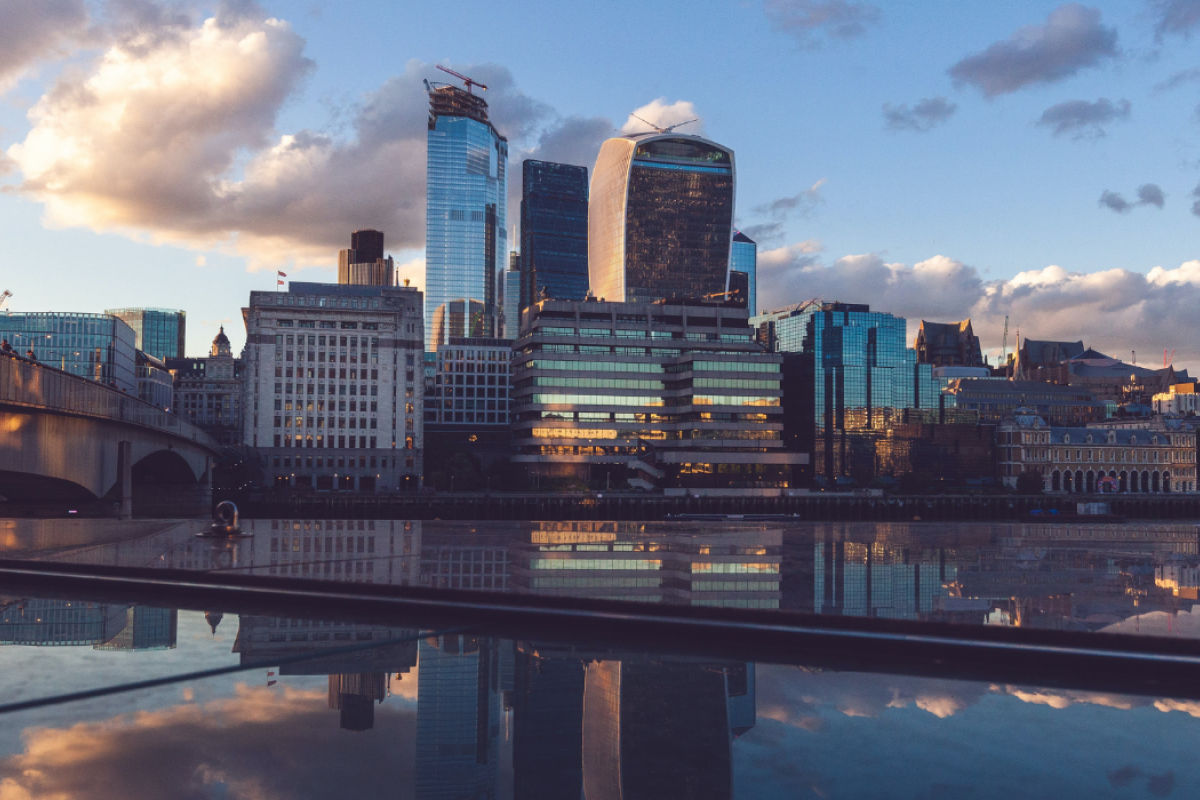While we’ve been witnessing the shocking scenes of wildfires burning in Southern Europe and North America, environmental issues have been used to drive division in UK politics. The byelection results in Uxbridge and ongoing arguments about ULEZ are testament to this.
Just at a time when we need to be stepping up our collective activities to address climate change, we seem to be losing direction. Only recently the Climate Change Committee (the government’s advisory body) concluded that the UK is no longer a world leader on climate issues, and claims were made that the UK is no longer on target to meet 2030 Net Zero commitments. Despite this, the Prime Minister is now claiming Britain can slow down on Net Zero because it is a leader, announcing a pushback on the ban on the sale of new petrol and diesel cars from 2030 to 2035. While it pleased some in the Conservative Party, it drew widespread criticism, notably from car manufacturer Ford.
Labour is currently polling ahead, it is impossible to predict who will be in power after the 2024 General Election and similarly hard to know what our governmental leadership on climate issues will really look like in the coming months.
But if the polls are correct and we have a Labour government, we could see a very different approach to environmentalism. Labour’s climate recovery plans haven’t really had the attention you might expect, but if Labour do get into power, they could present new and not insignificant opportunities for businesses to play an active role in tackling climate change.
Earlier this year, Labour published its Green Economy Recovery proposals. The party argues for urgent investment to support up to 400,000 green jobs across the country, and sets out its key principles for a ‘Green Economic Recovery’: sufficient action to meet the scale of the climate challenge, a recovery based on ‘decent work’, a just transition for a fairer, more sustainable and dynamic economy, and change needed at system, not just sector, level.
A key pillar of Labour’s approach is its commitment to intervention and aim to unite climate recovery and economic growth. Labour believes that economic growth can drive climate recovery, and vice versa – a green and virtuous circle, if you will.
Critically for businesses and marketers is Labour’s plans to behave like a VC firm – investing and collaborating with businesses to fuel sustainable innovation. This could open up big opportunities for brands looking to drive purposeful action on climate change.
Labour want to remove obstacles: rethinking regulation and planning, access to finance and strategic partnerships with industries to make Britain a high-growth start-up hub. Labour cites the US government which regularly provides direct or indirect investment of public funds in early-stage projects or technologies in order to foster innovation, create jobs and advance certain policy objectives.
If the UK had the same level of venture capital investment as a % of GDP as the US, this would add £16 billion – nearly double the level currently. This would see more innovation, higher economic growth, and better living standards.
Many of the ventures that have benefitted from US government investment are now fundamental to our daily lives: the internet, GPS and touchscreen technology, digital voice assistants, barcodes, Lithium-ion batteries… the list goes on. Labour is looking to adopt this approach but for sustainability. President Biden is already looking to provide funds for climate-related investment through his landmark Inflation Reduction Act.
So, if Labour’s plans were to go ahead – and at this stage it is a big if – it would give brands the opportunity to supercharge their approach to sustainability with government investment and collaboration. For those brands that want to get a head start, there are several things to begin thinking about.
Build partnerships and POVs in your category’s transition agenda
Unilever’s collaboration with the Ellen MacArthur Foundation has resulted in its commitment to ensure all of its plastic packaging is recyclable, reusable, or compostable by 2025. The alliance has enabled Unilever to be recognized as an industry leader on sustainability.
Create directional narratives (that stakeholders can align with)
Microsoft takes a definitive stance on AI ethics through its "AI for Good" initiative, focusing on responsible AI deployment in areas such as accessibility and humanitarian action. This narrative resonates with stakeholders and positions Microsoft as a thought leader in AI policy.
What service innovations can you introduce?
Renault worked with the French Government to make electric vehicle charging available in the remoter regions of the country. The Plug Inn app created nearly 500,000 charging points by partnering with communities of people who welcome drivers to charge their EVs in their homes.
How can you build infrastructure and create jobs in the UK?
Coca-Cola has started to build plant-plastic factories as part of the launch of its bottle prototype made from 100% plant-based sources. Similarly, Corona created jobs in China by partnering with the Chinese Government to farm limes through its Corona Extra Lime programme. Both of these ventures fuelled valuable opportunities for PR and marketing storytelling
Create marketing narratives that show delivery for diverse economic groups
Starbucks has been opening community stores in underserved neighbourhoods to stimulate local economic growth. These stores partner with local minority contractors, suppliers, and provide in-store training programs for youth. Any profits are reinvested into the community.
Focus on marketing that presents your vision of the sustainable future
Recently, MSC Cruises unveiled how they are looking to make their much-maligned category more sustainable, with initiatives including cleaner fuel, recycling and improved water management.
Leaving party politics aside, Labour’s plans present potentially big opportunities for brands looking to drive purposeful action in climate change. And even if these proposals don’t become governmental reality, brands will be doing valuable work to move their sustainability programmes forward by focusing on these important areas of development.
Please note that this piece has been written to reflect some potential future opportunities brands can take advantage of. It is not an endorsement of or support for any political party or policy.
Alex is co-founder of and Strategy lead at Revolt. He co-founded Revolt in 2017 in response to his belief in brands using ethics, value and voice to genuinely enact change. Revolt works with clients in three key ways to ensure actions speak louder than words: as a Purpose Consultancy, an Activity Agency and a Change Accelerator. Alex began his career at Ogilvy before spending over ten years at AMV BBDO. There he created two of the most awarded global campaigns of the past decade, while leading strategy across EMEA.



